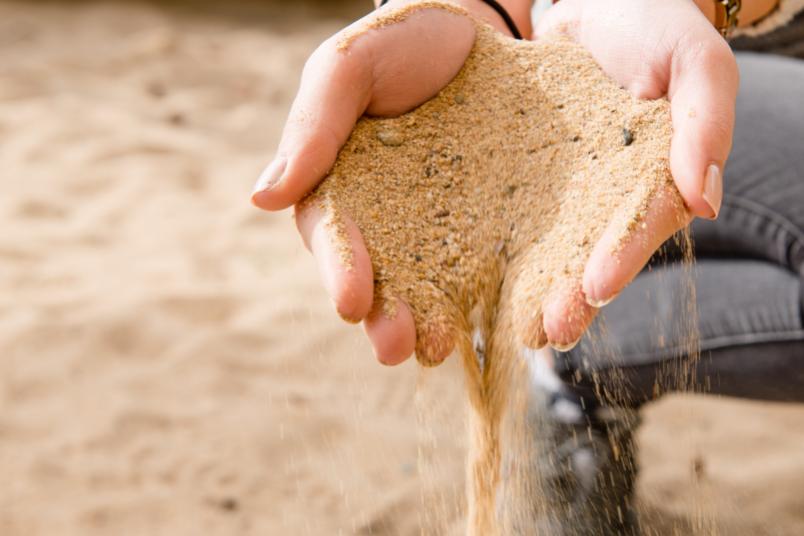
Civil engineering Are there more grains of sand than there are grains of sand?
We are confronted with the small grains everywhere in our daily routine. It would be better if we could recycle them.
Without sand, the world would be quite a different place. It's not just that beaches and deserts wouldn't exist. The tiny inconspicuous grains are ubiquitous. Concrete, glass, detergent, toothpaste, microchips, synthetics: all those products contain sand.
Two-third of all buildings worldwide are made from reinforced concrete, for example. Two-thirds of which, in turn, are sand. Because we are building our life on sand, as it were, we consume gigantic volumes of it.

Sand suitable for industrial applications is becoming scarce.
Even now, this is becoming a problem. Prof Dr Tom Schanz from the Chair of Foundation Engineering, Soil and Rock Mechanics explains the cause: “Sand suitable for industrial applications is becoming scarce. Countries such as the United Arabic Emirates are even forced to spend a lot of money on importing sand. Even though they have a lot of desert sand at the door step.”
This is because sand does not equal sand. “For concrete, we need angular grains that interlock well and render the concrete stable. In Germany, we extract this type of sand in gravel quarries – that will not be possible ad infinitum. Desert sand, on the other hand, has circular grains and is not suitable,” says Schanz.
Sand from the bottom of the sea or from beaches is problematic, too: first, because mining has a negative impact on the environment. Second, because that sand has initially to be rinsed with fresh water at great cost, in order to remove the salt it contains.
Concrete recycling does not work
Accordingly, there are not as many grains of sand as there are grains of sand. If we had to wait for new sand to form, we would have to prepare ourselves for long waiting periods. Sand is formed following the weathering of rocks in the mountains. It takes hundreds of years until the boulders arrive in our hands as small grains.
Concrete recycling is apparently no alternative, because the sandy results are unstable and soak up water. We will have to wait and see how the history of sand is going to end. Because, according to Tom Schanz: “At the moment, there are no alternatives to that raw material.”
